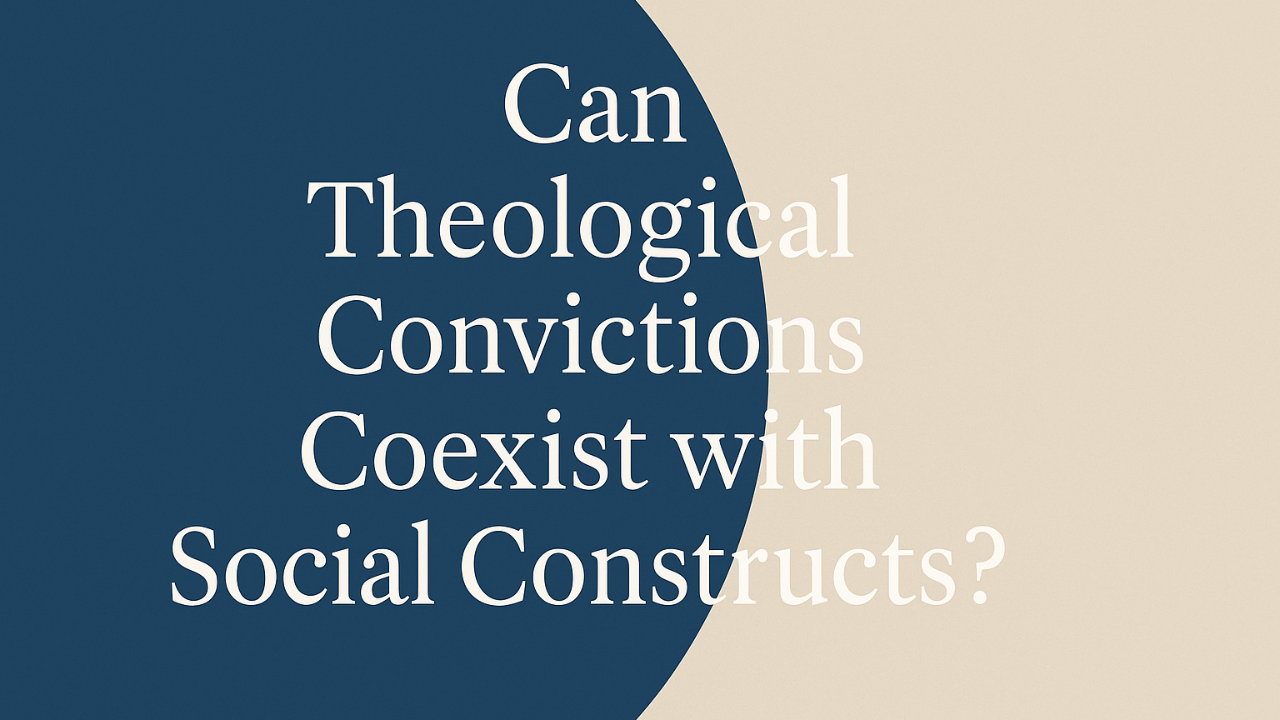Can Theological Convictions Coexist with Social Constructs?

By Rob Jackson, Founder & Lead Coach — Icebergology™ Coaching Academy
Introduction
We often hear that ideas like gender, morality, or even truth itself are social constructs—concepts built by people, sustained by culture, and shaped by shared language.
The phrase can sound unsettling to anyone whose faith rests on divine revelation. Does calling something a social construct mean it isn’t real? Does it leave room for theological conviction?
Let’s look closer.
What a Social Construct Really Means
A social construct simply describes how people create shared meaning.
Cultures develop systems, categories, and traditions—like money, marriage, or manners—not because they exist in nature, but because we agree to see them as real and act accordingly.
Social constructs help societies function. Yet they are not fixed truths. They shift when collective beliefs change.
Example: Concepts like beauty, kingship, and class have transformed across centuries.
But while the forms change, the human longing for meaning doesn’t. That longing points to something deeper.
Theological Conviction: Truth Revealed, Not Constructed
Theology begins with a different premise: there are truths that exist whether or not people agree with them. They are not invented—they are revealed.
From a Christian worldview, truth flows from God’s nature and Word. Human beings are made in His image (Genesis 1:27).
Good and evil are not decided by social consensus—they are defined by divine character. Marriage, worship, justice, and mercy reflect God’s eternal design.
In this sense, social constructs are not the enemy of theology; they are human interpretations of divine reality. Some align beautifully with God’s design. Others distort it.
Created Reality vs. Constructed Meaning
Here’s a helpful distinction:
| Created Reality | Constructed Meaning |
|---|---|
| What God establishes — truths woven into creation. | How societies describe, regulate, or misrepresent those truths. |
For example:
-
God created male and female — created reality.
-
Cultural definitions of masculinity and femininity — constructed meaning.
Some constructions reflect biblical wisdom. Others need renewal through truth.
The Iceberg Beneath the Surface
In Icebergology™, social constructs live mostly above the surface—in our collective thoughts, emotions, and behaviors.
They represent the visible patterns of a culture’s shared story. But beneath the surface lies the spiritual core: divine design, identity, and the work of the Holy Spirit to transform the heart.
When we confuse what is socially constructed with what is spiritually created, our “iceberg” tips. Healing begins when we realign human meaning with divine truth.
A Marriage Example
Marriage perfectly illustrates this dynamic.
A sociologist may say marriage is a social construct—a human arrangement for stability and child-rearing. That’s partly true. Customs differ across history.
But theology reveals a deeper reality: marriage is a sacred covenant designed by God to mirror Christ’s relationship with the Church (Ephesians 5:31–32).
So, marriage is both constructed and created.
Culture shapes the form. God defines the purpose.
Redeeming the Construct
Believers don’t need to reject the language of social construction—we can redeem it.
We acknowledge that people shape meaning through culture and then submit that meaning to divine revelation.
Social constructs tell us how people see the world.
Theology tells us what is ultimately real about the world.
Both matter. But only one can serve as the foundation.
A Closing Reflection
In a world where everything seems negotiable, theology anchors us. It reminds us that truth is not a cultural trend—it is a person: Jesus Christ (John 14:6).
Yes, there is room for theological conviction in conversations about social constructs. In fact, without theology, our constructs drift unmoored.
When faith guides our meaning-making, our human stories align with God’s greater story—
and that’s where peace and transformation begin.
💡 Icebergology™ Insight
Social constructs shape our collective behavior, but divine revelation shapes our eternal identity. True transformation happens when the surface aligns with the Source.
